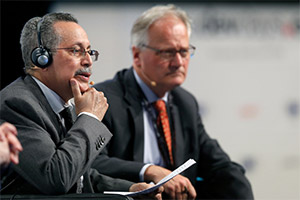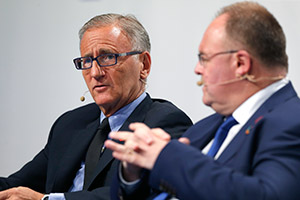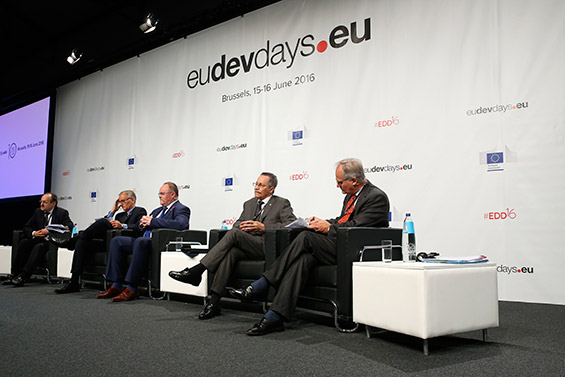FEATURED VIDEO: Post-Cotonou debate at European Development Days 2016
Brussels, 30 June 2016/ ACP: The question of what future arrangement will follow the historical ACP-EU Partnership Agreement when it expires in 2020, has ignited debate and deep reflections by the European Union as well as the ACP Group of 79 countries. The two blocs are party to the Cotonou Agreement, as it is also called, which binds them legally in a cooperation framework that covers trade, development cooperation and political dialogue.
On the 10th anniversary of the European Development Days – the EU’s prime event focussing on its international cooperation efforts – a high level debate organised on 15 June by the European Commission and the European External Action Service (EEAS) brought together key institutional figures to shed light on the topic.
The ACP Secretary General Dr. Patrick I. Gomes joined Luxembourg’s Minister for Development Cooperation and Humanitarian Affairs (Ministry of Foreign Affairs) Mr. Romain Schneider, the Minister of State for Development and Francophonie, attached to the French Minister of Foreign Affairs and International Development Mr. André Vallini and the Deputy Secretary General of the EEAS Mr. Christian Leffler, to discuss what possible areas to focus on moving forward, areas of the agreement in need of improvement, and what changes can be expected.
Framing the discussion, the European Commission’s Deputy Director General for International Cooperation and Development Mr. Klaus Rudischhauser who was moderating the session, opened with a series of key questions: “The question in front of us is what will be the situation after 2020? Is it still going to be the same group of countries? Is the content (of the agreement) going to be the same? Will it be more than just a development agreement?”
He said the ACP-EU is one of the most important partnerships of the EU, and that any future relation would be less centred on development cooperation and more political, with countries working with each other at the same level (in contrast to a donor-recipient set-up).
The ACP Secretary General saw the ‘post-Cotonou’ period as a “new departure” and that the ACP Group will be seeking to make a difference as a hub for South-South and Triangular Cooperation. In this regard, links with the regions are essential, such as through the African Union or the regional economic communities. The ACP needs to deepen its partnership with the EU, while also diversifying to engage other partners in the international arena.
EEAS Deputy Secretary General Christian Leffler suggested to “draw the best” out of the 40-year old partnership, focusing on elements such as its legally framework, shared political objectives, and significant financial backing. However, there is a need to “move beyond the narrow prism of development” and translate these to an alliance that can be used for global interests. He highlighted the role of the ACP-EU alliance in sparking the momentum towards the historic Paris Agreement on Climate Change at the COP21 meeting last December.
France’s Minister of State for Development Andre Vallini stressed the importance of incorporating the 2030 Agenda for Sustainable Development into the ACP-EU framework, including goals for resource mobilization. Mr. Vallini called for at least 20% of the European Development Fund (EU’s multi-billion euro instrument for development cooperation in ACP countries) to be dedicated for climate finance, while also highlighting education and peace & good governance as key focus areas.
The Minister for Development Cooperation and Humanitarian Affairs of Luxembourg Romain Schneider argued against a silos approach. ACP and EU must work together in an open process, involving also civil society and private sector. He also highlighted the need for policy coherence, adding that key development issues such as migration or economic cooperation requires coherence with other ministries, and not just that dealing with development cooperation.
All the speakers agreed that the ACP-EU partnership would continue, but needs to be realigned and revamped to fit current global trends.
For more information on the event, click here.
Watch the video of the discussion on YouTube.

(Photos from top: Panellists Patrick Gomes (ACP) and Christian Leffler (EEAS); Andre vallini (France) and Romain Schneider (Luxembourg); the Post-Cotonou debate moderated by Klaus Rudischhauser (DG DEVCO)./ Photos: EDD16)
– ACP Press
